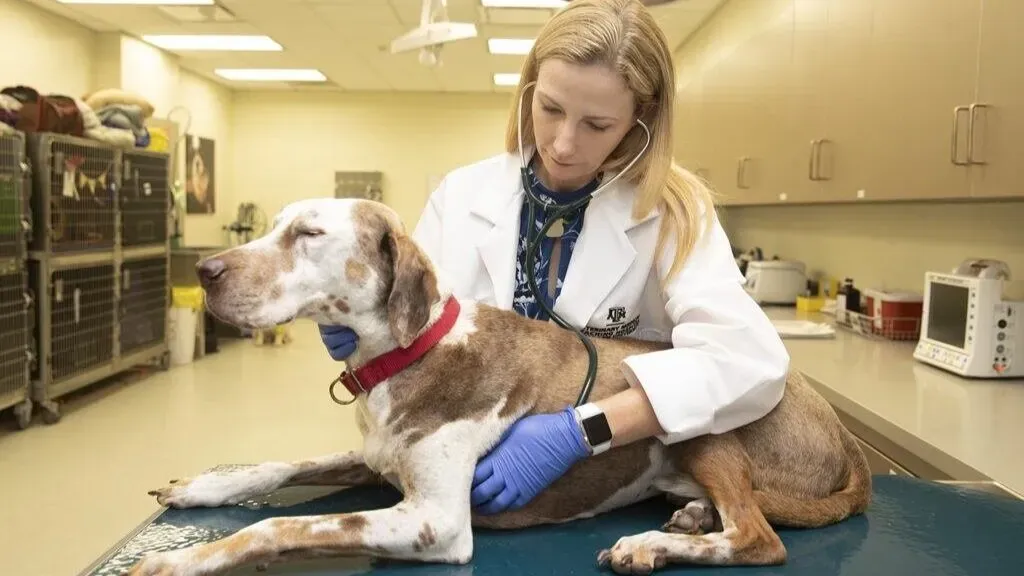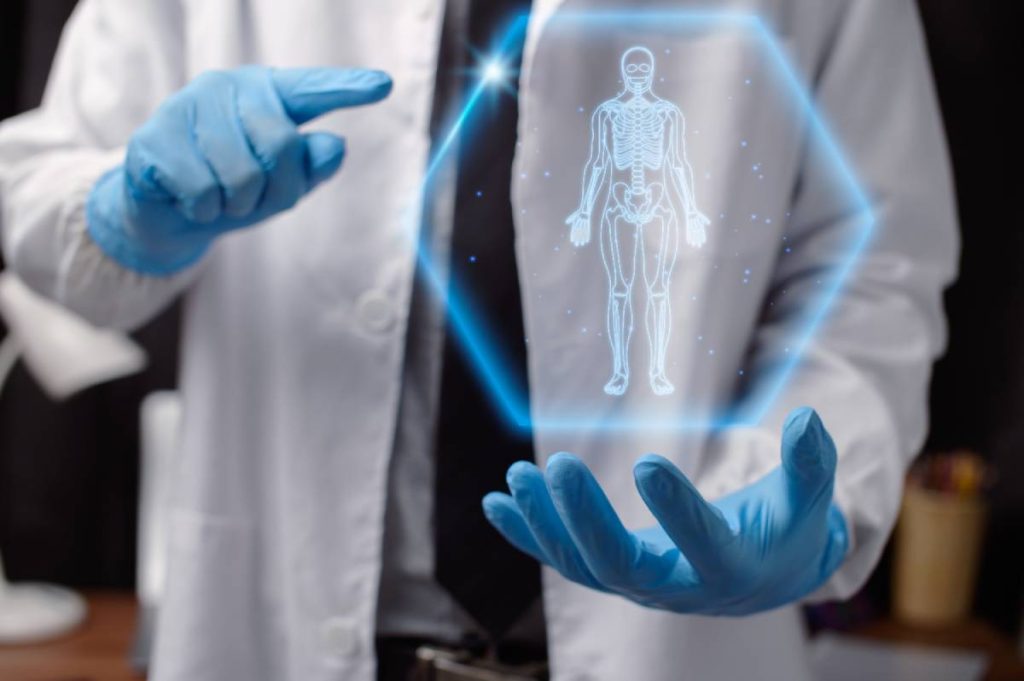Dogs detect cancer in astonishing ways, showcasing their incredible instinct and acute sense of smell. Research has indicated that certain breeds can sense biochemical changes in their owners, enabling them to alert them to potential health issues, including cancer. As exemplified in the remarkable story of Breanna Bortner and her dog Mochi, the bond between humans and their canine companions can lead to life-saving discoveries. While many may wonder how dogs sense cancer, the truth lies in their ability to detect abnormal chemical compounds released by tumor cells. This captivating phenomenon underscores the vital role of dogs in cancer awareness and highlights the potential for canine cancer detection as a complementary tool in modern medicine.
Canines possess an extraordinary ability to identify signs of illness in humans, earning them a reputation as intuitive companions and guardians of health. The phenomenon of canine cancer detection involves dogs recognizing specific scents related to cancerous cells, which may precede clinical diagnosis by months. Stories like that of Breanna Bortner and her dog Mochi highlight how these furry friends can serve as both emotional support dogs and invaluable partners in early disease detection. Their keen olfactory senses lead to breakthroughs in understanding the complex interactions between pets and human health, making dog ownership a potentially life-saving experience. The intertwining narratives of dogs and cancer awareness illustrate the unique relationship that can develop between humans and their beloved pets, revealing the potential for dogs to act as vital allies in our health journeys.
How Dogs Detect Cancer: The Science Behind Canine Cancer Detection
Dogs possess a remarkable olfactory sense, which is estimated to be 10,000 to 100,000 times more sensitive than that of humans. This extraordinary ability allows them to detect various scents, including those emitted by cancerous cells. Recent studies have suggested that dogs can identify specific cancer-related odors, including volatile organic compounds released from tumors. As they sniff out these unique scents, they may be able to alert their owners to underlying health issues, eventually leading to early diagnosis and treatment.
Dr. Marc Siegel, a clinical professor of medicine, confirms that dogs have an exquisite ability to detect alterations in the body, including abnormal cancer proteins. With their noses finely tuned to differentiate various scents, they can potentially identify early warning signs of conditions like breast cancer. Research has indicated that artificial canine noses, inspired by dogs’ natural abilities, are also being developed to help in clinical settings. Harnessing such natural talents of dogs could enhance diagnostic tools and lead to more effective cancer detection methods.
The Emotional Bond: Dogs and Cancer Awareness
The bond between humans and dogs goes beyond companionship; it has tangible implications for physical health and emotional well-being. Many people, like Breanna Bortner, share stories where their dogs had an uncanny ability to sense their health problems before they were diagnosed with any medical condition. For Bortner, her dog Mochi’s fixation on her breast provided an emotional lifeline during her cancer journey, demonstrating how deeply attuned dogs are to their owner’s health and emotional states.
In addition to alerting their owners to changes in health, dogs provide crucial emotional support during challenging times. The presence of a beloved pet can greatly alleviate stress, anxiety, and feelings of loneliness among cancer patients. Emotional support dogs like Mochi can inspire their owners to maintain a sense of normalcy, engaging in daily routines and facilitating movement, even during treatment. These furry companions help in the healing process by offering comfort and companionship, reinforcing their vital role in cancer awareness and overall health.
Breanna Bortner’s Inspiring Breast Cancer Journey
Breanna Bortner’s journey through breast cancer has been inspirational, especially considering the unique role her dog, Mochi, played throughout her ordeal. After discovering a lump, it was Mochi’s unusual behavior that prompted Breanna to delve deeper into her health. As she candidly shares her experiences through the blog “Brave Beautiful Boobies,” Breanna emphasizes the importance of early detection and the emotional support she received from Mochi, which fueled her determination to combat the disease.
Breanna’s story illustrates how personal experiences with cancer can create community awareness and support. By sharing her journey, she not only helps destigmatize the conversation around breast cancer but also encourages others to pay attention to their bodies—and, in some cases, their dogs. As she moves forward, her commitment to guiding others who face similar challenges showcases the resilience and bravery inherent in navigating a cancer diagnosis, all while highlighting her bond with Mochi who stood by her side throughout her treatment.
Understanding Triple-Negative Breast Cancer and Its Challenges
Triple-negative breast cancer (TNBC) is a particularly aggressive type of breast cancer that lacks the three common receptors known to fuel most breast cancer growth. As Breanna Bortner has unfortunately discovered, TNBC presents unique treatment challenges and requires tailored approaches that may involve chemotherapy, surgery, or clinical trials. The absence of targeted therapies places patients in a vulnerable position, making early detection even more essential.
The complexity of triple-negative breast cancer underscores the significance of ongoing research and education regarding this subtype. Increased awareness can lead to more funding for studies and trials aimed at addressing treatment gaps. Sharing true stories, like Breanna’s, helps highlight the pressing need for effective therapies and early detection methods, which may include the incredible ability of dogs to sense underlying health issues in their owners, ultimately leading to quicker diagnoses and more holistic care.
The Role of Emotional Support Dogs During Cancer Treatment
Emotional support dogs play an increasingly recognized role in the lives of cancer patients, providing companionship and comfort during the hardships of treatment. Bortner’s experience highlights how her dog Mochi motivated her to sustain daily activities, even in the challenging moments of chemotherapy. Emotional support dogs can alleviate feelings of anxiety, depression, and isolation, creating a warm and nurturing environment that is beneficial for healing.
The bond formed between patients and their emotional support dogs cannot be overstated. These loyal companions offer a sense of purpose and accountability, encouraging their owners to stay engaged with life during treatment. By integrating the presence of a furry friend into their recovery journey, patients can experience improvements in their mental and emotional states, ultimately contributing to their overall well-being.
Creating Awareness About Cancer Symptoms: Dogs Can Help
While dogs have an uncanny ability to sense specific health issues, human awareness of cancer symptoms must also be prioritized. Education about signs and symptoms of various cancers can empower individuals toward early diagnosis. Many stories, such as Breanna’s, illustrate a significant gap in awareness leading to late-stage detections despite the potential presence of warning signals. Sharing experiences can facilitate a broader conversation surrounding cancer awareness and the support tools available.
Combining the natural capabilities of dogs with heightened human awareness can lead to significant improvements in health outcomes. When people recognize and respect their dogs’ instincts, they may take proactive measures to consult healthcare professionals sooner, bridging the gap between intuition and medical intervention. This partnership between human and canine in the fight against cancer signifies a vital aspect of advancing awareness and education.
Harnessing Dogs’ Natural Abilities with Technology
Artificial intelligence and technology are increasingly being employed to enhance the natural abilities of dogs in detecting health issues. Researchers are working to create machines that mimic the canine sense of smell, using AI to train these devices to recognize specific chemical markers associated with various cancers. This technology promises to revolutionize how early detection can be approached; however, it also emphasizes the invaluable contributions of dogs in medical research and diagnosis.
By integrating technology with the extraordinary sensory capabilities of dogs, there is potential for groundbreaking advancements in cancer detection. For example, a combination of scent detection and analytical devices could lead to quick, non-invasive methods of diagnosing health conditions. Dogs may remain our best friends, but they are also emerging as key players in the medical field, contributing to the understanding and management of diseases like cancer.
The Community Impact of Sharing Cancer Journeys and Pet Stories
Breanna Bortner’s blog “Brave Beautiful Boobies” not only documents her personal experience with breast cancer but also serves as a vital resource for others facing similar health challenges. The stories of patients and their dogs create a sense of community, reminding individuals grappling with cancer that they are not alone. Sharing such narratives fosters understanding, compassion, and connection among survivors and support networks, while also raising awareness about the role pets play in healing.
By engaging in conversations surrounding both cancer and the companionship of dogs, people can take active roles in advocating for proper health awareness. Supportive communities formed through social media platforms allow individuals to share their experiences, uplift each other, and promote awareness about the critical early signs of cancer. This interconnectedness is crucial for breaking barriers and uniting efforts in the fight against cancer, with dogs serving as symbols of hope and resilience.
A Call to Action: Recognizing Dogs’ Contributions to Cancer Awareness
Encouraging awareness around the incredible capabilities of dogs to sense cancer invites a deeper dialogue about their role in human health. Encouragement should be directed towards recognizing potential signs of illness in ourselves as well as our pets’ behavior. By understanding how dogs detect cancer, individuals may be motivated to pay closer attention to both their health and their pets’ instincts, ensuring that they do not overlook any health warning signals.
Moreover, the medical community can benefit from embracing this synergy between humans and dogs. Conducting more research that explores the efficacy of dogs in cancer detection could lead to innovative approaches in healthcare, ultimately aiding in the advancement of diagnostic methods. In a world where both health awareness and canine companionship improve lives, we must collectively embrace this partnership to foster better cancer outcomes.
Frequently Asked Questions
How can dogs detect cancer in humans?
Dogs can detect cancer in humans due to their acute sense of smell. Research indicates that dogs are capable of identifying abnormal cancer proteins in a person’s breath, urine, or bodily fluids. Their remarkable olfactory abilities enable them to sense the chemical changes associated with cancer, making them potential allies in early detection for various types of cancer.
What is canine cancer detection and how does it work?
Canine cancer detection refers to the ability of dogs to recognize certain scents associated with cancer in humans. This process involves dogs being trained to identify specific odors produced by cancer cells. Studies have shown that these intuitive behaviors can lead to early diagnosis, potentially saving lives, as dogs often sense changes in their owners’ health before human detection.
What role did Mochi the dog play in Breanna Bortner’s cancer journey?
Mochi, Breanna Bortner’s dog, played a significant role in her cancer journey by fixating on her breast before she was diagnosed with stage 2B triple-negative breast cancer. His unusual behavior raised her awareness of her health issues, highlighting how dogs can sense cancer and providing emotional support throughout her treatment.
Can emotional support dogs assist with cancer awareness?
Yes, emotional support dogs like Mochi can greatly assist with cancer awareness by providing comfort and companionship during challenging health journeys. Their intuitive behaviors can also alert their owners to potential health issues, fostering a greater awareness of the need for medical check-ups and early detection.
Why is dog behavior relevant in discussions about cancer detection?
Dog behavior is highly relevant in discussions about cancer detection because many pet owners have reported instances where their dogs exhibited unusual behavior, signaling potential health problems. This phenomenon underscores the potential for canine intuition and their ability to detect subtle changes associated with cancer, sparking interest in further research and exploration in canine cancer detection.
How does the medical community view dogs and cancer detection?
The medical community recognizes the potential of dogs in cancer detection due to their extraordinary sense of smell. Experts, such as Dr. Marc Siegel, have confirmed that dogs can smell abnormal cancer proteins, leading to the development of training programs aimed at harnessing this ability. There is growing interest in employing dogs for non-invasive cancer screening methods.
Can dogs sense breast cancer specifically?
Yes, dogs can sense breast cancer specifically through their highly developed olfactory senses. Some studies have indicated that dogs may be able to detect volatile organic compounds emitted by cancerous breast tissues, thus potentially aiding in the early detection of breast cancer in women.
What are some real-life stories of dogs detecting cancer?
Numerous real-life stories underscore dogs’ capabilities in detecting cancer, such as the story of Breanna Bortner and her dog Mochi. Before receiving her cancer diagnosis, Mochi exhibited unusual behavior by fixating on her breast, prompting Bortner to seek medical attention. Such anecdotes highlight the remarkable bond between dogs and humans, particularly in recognizing health concerns.
How can I train my dog to detect cancer?
Training a dog to detect cancer typically involves specialized programs that teach dogs to recognize specific scents associated with various cancers. This training focuses on positive reinforcement, where dogs are rewarded for accurately identifying the target odor. Though individual pet owners may not have access to formal training, awareness of a dog’s intuitive behaviors can be invaluable.
What are the benefits of having an emotional support dog during cancer treatment?
Having an emotional support dog during cancer treatment offers numerous benefits, including emotional stability, companionship, and a sense of normalcy amidst challenging health circumstances. Dogs provide unconditional love and support, motivating individuals to engage in daily activities, which can help improve mental health and overall well-being during treatment.
| Key Points |
|---|
| Breanna Bortner’s dog, Mochi, showed unusual behavior by fixating on her breast before she was diagnosed with stage 2B triple-negative breast cancer. |
| The fixation lasted six weeks between the discovery of the lump and the biopsy. |
| Mochi’s behavior indicated he sensed something was wrong, as he had never acted this way before. |
| Bortner underwent 16 rounds of chemotherapy, referring to them as ‘healing sessions’ to cope with the fear. |
| Mochi provided emotional support during Bortner’s treatment and recovery, motivating her to keep going. |
| After treatment, Bortner started a blog to mentor others facing cancer. |
| Doctors confirm that dogs have a strong sense of smell and can potentially detect cancer-related molecules. |
| Research and artificial intelligence are enhancing the understanding of canine detection capabilities. |
Summary
Dogs detect cancer by leveraging their remarkable olfactory senses, as demonstrated by the story of Breanna Bortner and her dog Mochi. Mochi’s behavior alerted Bortner to a serious health issue before medical diagnosis, underscoring the instinctual bond between pets and their owners. With growing evidence that dogs can smell abnormal cancer proteins, their role in early detection is increasingly recognized by medical professionals. This highlights not only the incredible abilities of dogs but also the importance of pet companionship during health challenges.



